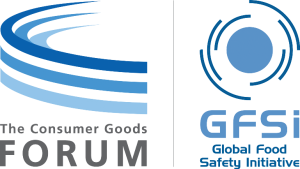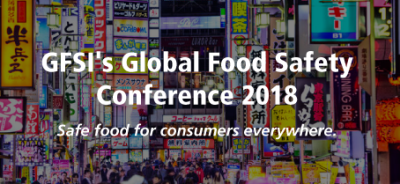Seizing the Opportunities – How FMCG Companies Can Ensure Food Safety

By Véronique Discours-Buhot, GFSI Director
January’s headlines were dominated by a food hygiene scandal at one of the UK’s most prominent meat suppliers. The revelations have driven food safety to the top of the agenda for European FMCG companies, fuelling debate as to the best practices for ensuring full compliance, guaranteeing product authenticity and eliminating any threats to public health. Fortunately, there are steps that food manufacturers can take to ensure that they are meeting regulatory standards and providing consumers with the very best quality products.
 Food safety should be ingrained
Food safety should be ingrained
First, food safety and quality should be embedded into all organisational processes. Every stage of a supply chain, from R&D and product development to raw material procurement and manufacturing, should be rigorously monitored to ensure full compliance with regulatory standards, capitalising on data and traceability processes. There also needs to be a cultural focus on food safety; senior leaders should be championing continuous improvements in product quality and food safety systems. Food safety and security can also form part of a wider sustainability strategy, appearing alongside a zero-tolerance policy on exploitative labour practices and a strategy for cutting carbon emissions across the supply chain. Food hygiene scandals demonstrate the importance of building sustainability and food safety into a corporate ethos.
Collaborate, collaborate, collaborate
Collaboration is becoming increasingly crucial for the food retail industry in the battle to ensure food safety. In the era of globalisation, supply networks are becoming increasingly complex and difficult to monitor, so corporate leaders need to demonstrate an openness and willingness to learn about best practices from across the sector. Major industry conferences, such as this year’s Global Food Safety Conference in Tokyo, provide important forums for discussing best practices and learning about a diverse range of topics, such as the right way to implement technology, engage with food regulators, construct the best leadership models and understand new patterns in consumption.
 Seize on the technological revolution
Seize on the technological revolution
The food industry is in the middle of a technological revolution, and industry leaders need to ensure that they are in touch with the latest developments and understand the potential for enhancing food safety standards. Blockchain is just one of many systems that could have enormous implications for the sector. As a distributed ledger framework, where information is visible to all stakeholders, it’s capable of enhancing tracking methods and encouraging FMCG giants and suppliers to share data with each other on supply chain processes. By strengthening traceability, businesses can better protect their products throughout the manufacturing process and build trust with suppliers.
Listen to consumers
Consumer behaviour is changing – nowadays, people are demanding more information about food than ever before. The public, especially the millennial generation, are growing distrustful of major corporations, turning increasingly towards smaller, independent and locally based producers. What does all this mean for food safety? The answer is that FMCG companies need to invest in initiatives to improve transparency and educate consumers. They need to be sharing more information about their supply chains, ensuring that people fully understand where their food has come from.
Ensure alignment with internationally recognised guidelines
Food safety is an extremely complex issue and it can sometimes be difficult for companies to understand how to achieve full compliance with national and international regulations. By discovering more about internationally recognised food safety frameworks, corporations can ensure they are meeting the highest standards. The GFSI provides an easily understandable benchmark for food safety programmes, offering businesses a set of guidelines and instructions on how to implement effective controls. Corporate leaders need to ensure that they are in touch with the latest developments in benchmarking and certification tools.
As you can see, there are steps that businesses can take to avoid becoming the centre of a huge food scandal. By demonstrating a willingness to learn, showing candour in consumer relations and deploying technology in the right way, businesses can minimise the risks involved in food production. There are steps that businesses can take to ensure safe food for consumers everywhere.
The Global Food Safety Conference takes place in Tokyo on March 5th-8th 2018.

































